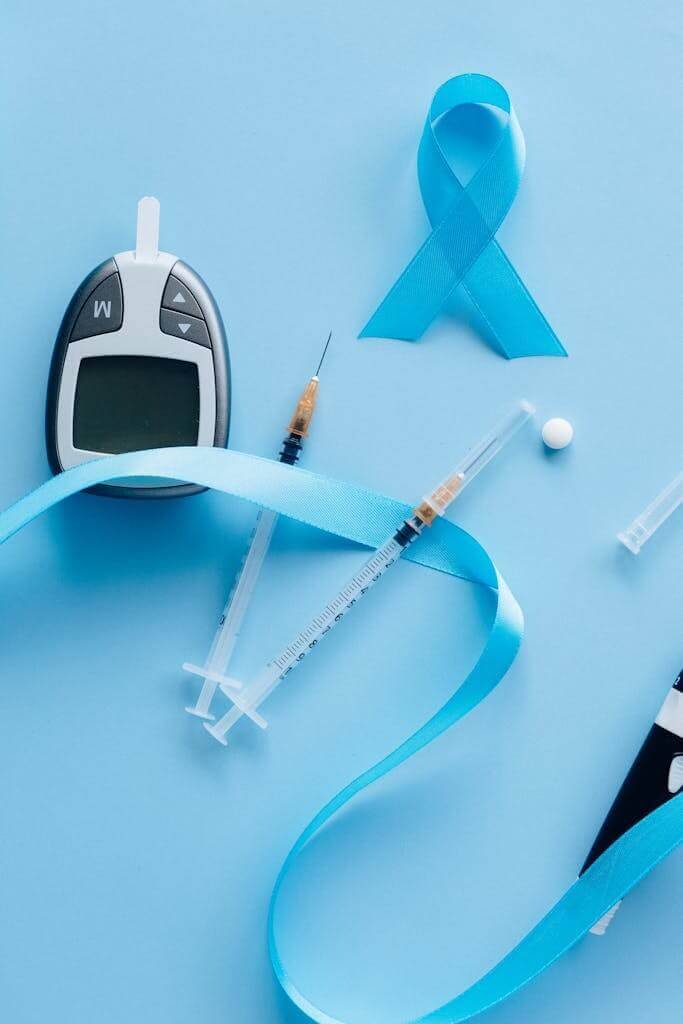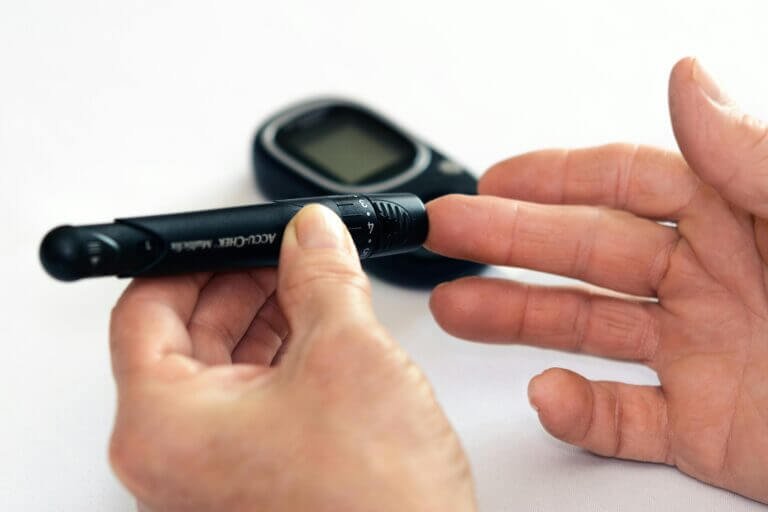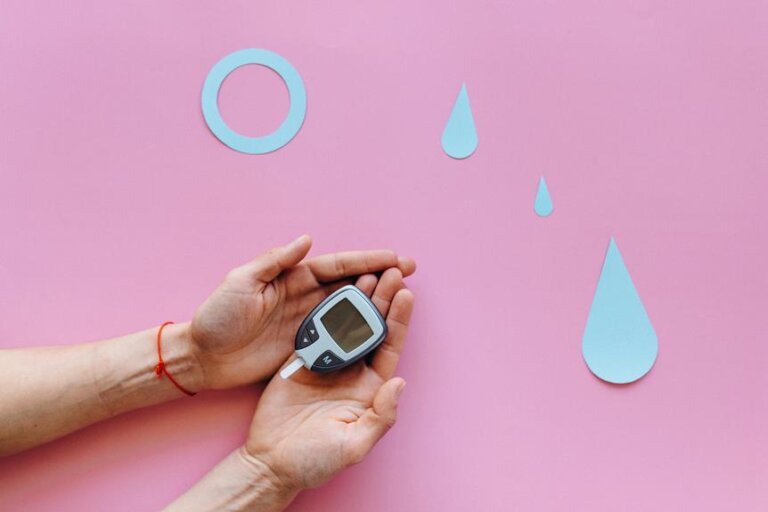Early Detection of Cancer in Diabetic Individuals: A Guide
Imagine navigating the complex terrain of healthcare with diabetes as your steadfast companion. However, amidst your vigilant glucose monitoring and medication regimen, there lies a lurking concern that demands your attention.
What if there were subtle signs of a formidable adversary like cancer that you could detect early on, potentially altering the course of your health journey?
Let's explore how being proactive in identifying cancer risks could be a game-changer for individuals managing diabetes, offering a beacon of hope in the face of uncertainty.
Cancer Risk in Diabetic Individuals
Diabetic individuals face an increased risk of developing cancer compared to non-diabetic individuals. This heightened risk is a significant concern for those managing diabetes. Research has shown a clear correlation between diabetes and various types of cancer, emphasizing the importance of regular screenings and early detection.
When you have diabetes, your body's ability to regulate blood sugar levels is impaired. This can lead to chronic inflammation and changes in hormone levels, creating an environment that may promote cancer growth. Additionally, certain risk factors for diabetes, such as obesity and poor diet, are also linked to an increased likelihood of developing cancer.
It is crucial for individuals with diabetes to be proactive about their health. By maintaining a healthy lifestyle, attending regular check-ups, and discussing any concerns with healthcare providers, you can effectively manage your risk of developing cancer. Early detection plays a key role in successful cancer treatment, making vigilance and awareness vital for those navigating both diabetes and the potential risks of cancer.
Common Types of Cancer
What're some common types of cancer that individuals with diabetes should be aware of?
It's important for diabetic individuals to stay vigilant about various types of cancer that they may be at a higher risk of developing. One common type is breast cancer, which affects both men and women, but women with diabetes have been shown to have a higher risk.
Prostate cancer is another concern, especially for diabetic men. Colorectal cancer is also prevalent among individuals with diabetes, so regular screenings are crucial. Additionally, pancreatic cancer has been linked to diabetes, making it essential for diabetic individuals to monitor any symptoms carefully.
Lung cancer is a significant risk as well, particularly for smokers with diabetes. Lastly, liver cancer is a concern due to the increased prevalence of liver disease among diabetic individuals.
Being aware of these common types of cancer can help individuals with diabetes take proactive steps towards early detection and treatment.
Importance of Early Detection
Early detection of cancer plays a crucial role in improving treatment outcomes and increasing survival rates. For individuals with diabetes, being proactive in monitoring for signs of cancer can make a significant difference in their overall health. Detecting cancer at an early stage allows for more treatment options, potentially leading to better outcomes.
By catching cancer in its early stages, medical interventions can be more effective, and the chances of successful treatment are higher. Regular screenings and paying attention to any unusual symptoms can lead to the detection of cancer at a more manageable phase. This can also help in preventing the cancer from spreading to other parts of the body, which can be crucial for long-term survival.
Moreover, early detection may also reduce the need for more aggressive treatments, which can have significant side effects. It allows for a more targeted approach, potentially leading to a better quality of life during and after treatment. Therefore, staying vigilant and seeking timely medical advice can truly be life-saving for individuals with diabetes at risk of cancer.
Screening Guidelines for Diabetics
How can regular screenings benefit individuals managing diabetes?
Regular screenings play a crucial role in the early detection of cancer in diabetic individuals. For diabetics, the risk of developing certain types of cancer is higher than in the general population. By undergoing routine screenings, such as mammograms, colonoscopies, and skin checks, individuals can catch cancer at its earliest stages when treatment is most effective. These screenings can help detect cancer before symptoms even arise, leading to better prognoses and treatment outcomes.
It is recommended that individuals with diabetes work closely with their healthcare providers to establish a personalized screening plan based on factors such as age, gender, family history, and overall health. Following these screening guidelines can significantly increase the chances of detecting cancer in its early stages when it's most treatable. Remember, early detection saves lives, and regular screenings are a proactive way to protect your health while managing diabetes.
Monitoring Strategies and Tips
To effectively manage your diabetes and stay on top of your health, implementing consistent monitoring strategies and tips is essential. Regularly monitoring your blood sugar levels is crucial in preventing complications and detecting any potential issues early on. Keep a log of your levels and patterns to share with your healthcare provider during check-ups.
Additionally, make sure to schedule regular appointments with your doctor for screenings and tests specific to cancer detection in diabetic individuals.
Maintaining a healthy lifestyle is key to managing both diabetes and reducing the risk of cancer. Focus on a balanced diet rich in fruits, vegetables, whole grains, and lean proteins. Incorporate regular physical activity into your routine to help control blood sugar levels and promote overall well-being. Remember to stay hydrated and get an adequate amount of sleep each night.
In addition to monitoring your physical health, pay attention to your mental well-being. Stress management techniques such as mindfulness, meditation, or yoga can help reduce the impact of stress on your body. Stay connected with loved ones for emotional support and consider joining a support group for individuals managing diabetes and cancer concerns. By staying proactive and informed, you can effectively monitor your health and detect any potential issues early on.
Conclusion
In conclusion, it's crucial for individuals with diabetes to be proactive in detecting cancer early. By understanding the increased risk of cancer in diabetic individuals, knowing the common types of cancer they may face, and following screening guidelines, you can take control of your health.
Remember to stay vigilant, attend regular screenings, and communicate any concerns with your healthcare provider. Early detection can make a significant difference in your treatment and outcomes.





